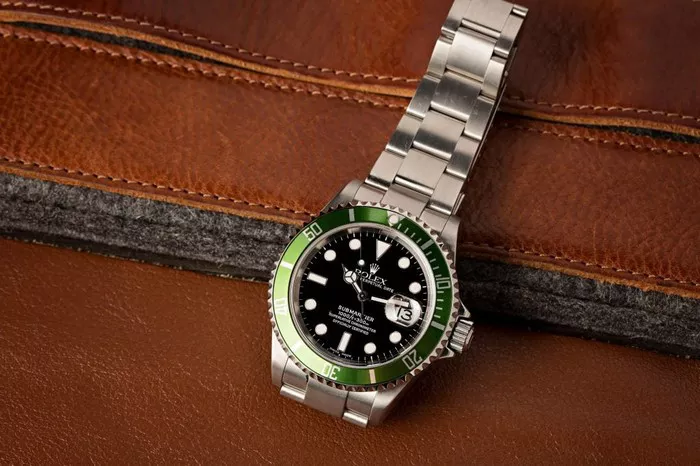In the realm of luxury watches, Rolex and Patek Philippe stand as titans, each with its own legacy, craftsmanship, and devoted following. The question of whether Rolex is better than Patek Philippe, or vice versa, is a perennial debate among watch enthusiasts. In this article, we explore the nuances of these two horological giants, dissecting key aspects to shed light on the comparative excellence of Rolex and Patek Philippe.
1. Heritage and Legacy: Foundations of Excellence
Both Rolex and Patek Philippe boast rich histories. Rolex, founded in 1905, has been a pioneer in various innovations, including the first waterproof watch. Patek Philippe, established in 1839, has a heritage steeped in horological achievements, producing timepieces for royalty and collectors alike. Comparing their legacies requires acknowledging their distinct contributions to the watchmaking world.
2. Craftsmanship and Precision: The Rolex Touch
Rolex is renowned for its precision and craftsmanship. The brand’s commitment to in-house manufacturing, stringent quality control, and attention to detail have solidified its reputation. Rolex watches, often recognized for their robustness, accuracy, and durability, reflect the brand’s emphasis on creating timepieces for practical use.
3. Artistry and Complexity: Patek Philippe’s Mastery
Patek Philippe excels in intricate watchmaking and artistic brilliance. The brand is synonymous with haute horlogerie, producing some of the most complicated mechanical watches in existence. Patek Philippe’s dedication to craftsmanship and artistic excellence is evident in its grand complications, intricate movements, and exquisite detailing.
4. Materials and Innovation: Rolex’s Utilitarian Approach
Rolex prioritizes utilitarian materials and innovation. The brand’s use of 904L stainless steel, proprietary gold alloys, and advancements like the Parachrom hairspring showcase its dedication to creating durable and reliable timepieces. Rolex’s innovations, such as the Oyster case and the Perpetual rotor, have become industry benchmarks.
5. Exclusivity and Rarity: Patek Philippe’s Limited Production
Patek Philippe’s limited production contributes to exclusivity. The brand deliberately restricts the number of watches produced, adding an element of rarity. Patek Philippe watches, especially limited editions and rare complications, are often sought after by collectors who appreciate the exclusivity of owning a timepiece from this esteemed manufacture.
6. Iconic Designs: Rolex’s Enduring Aesthetic
Rolex’s iconic designs contribute to its timeless appeal. Watches like the Submariner, Datejust, and Daytona have become cultural icons. Rolex’s ability to balance innovation with maintaining the essence of its classic designs has played a significant role in the enduring popularity of its timepieces.
7. Investment Value: Patek Philippe’s Historical Performance
Patek Philippe watches are often considered investments. The brand’s historical performance in terms of value retention and appreciation is noteworthy. Certain Patek Philippe models, particularly vintage pieces and limited editions, have achieved impressive prices at auctions, attracting investors to the brand.
8. Price Range and Accessibility: Rolex’s Broader Market Presence
Rolex offers a broader range of price points, increasing accessibility. While Rolex watches can be high-end and exclusive, the brand also produces more accessible models, allowing a wider audience to own a piece of horological excellence. Patek Philippe, on the other hand, maintains a position in the upper echelons of the luxury watch market.
Conclusion: A Matter of Personal Preference
In conclusion, determining whether Rolex is better than Patek Philippe is inherently subjective and often depends on individual preferences, priorities, and the intended purpose of the watch. Rolex excels in creating robust, reliable, and iconic timepieces with a focus on practicality, while Patek Philippe is revered for its intricate craftsmanship, artistic brilliance, and exclusivity.
For those seeking a watch that embodies a utilitarian approach, timeless design, and a track record of durability, Rolex may be the preferred choice. Conversely, individuals valuing artistic mastery, complexity, and the prestige associated with limited production may find Patek Philippe more aligned with their aspirations.
Ultimately, the “better” choice between Rolex and Patek Philippe is contingent upon the values, tastes, and requirements of the wearer. Whether it’s the enduring appeal of a Rolex or the artistic allure of a Patek Philippe, both brands stand as benchmarks of horological excellence, catering to diverse preferences in the world of luxury watches.

